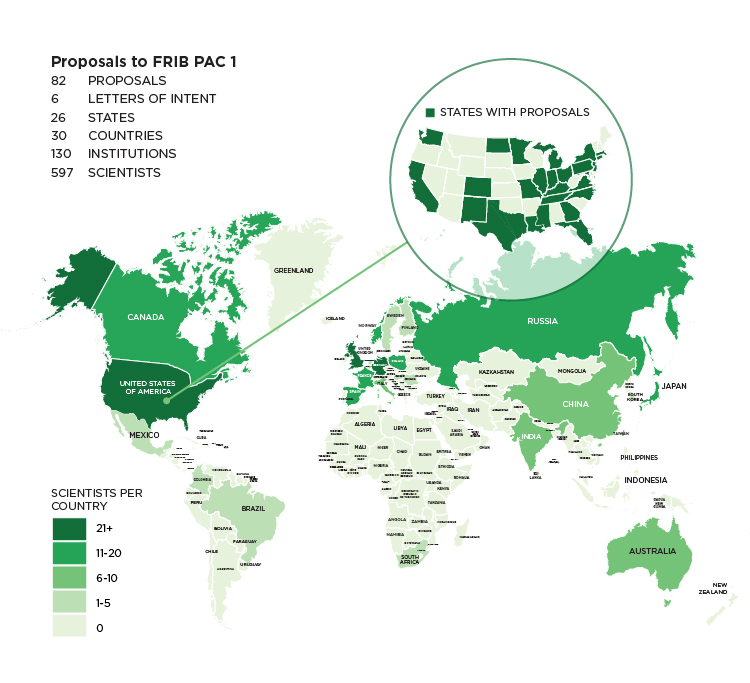Proposals for first FRIB experiments align with national priorities, span full FRIB capabilities
Share this article:
Share this article:
As FRIB readies to commence user operation in early 2022, scientists submitted experiment proposals in response to FRIB’s first call for proposals.
Eighty-two proposals requesting 9,784 hours of beam time and six letters of intent were submitted, covering 16 of the 17 National Academies benchmarks for FRIB. These proposals align with national science priorities and span the four FRIB science areas: properties of rare isotopes; nuclear astrophysics; fundamental interactions; and applications for society, including in medicine, homeland security, and industry.
The proposals request the full spectrum of FRIB’s capabilities: fast, stopped, and reaccelerated rare-isotope beams, use of all FRIB experimental areas offered in the first Program Advisory Committee (PAC), as well as all major FRIB instruments.
Additionally, proposals represent FRIB’s international user community of more than 1,500 scientists. Respondents include 597 individual scientists—354 from the United States—representing 130 institutions in 30 countries and 26 U.S. states.
This response from the FRIB user community bodes well for an impactful science program starting in early 2022. FRIB’s first PAC meeting in May will evaluate the scientific merit of these proposals.
Supporting the mission of the Office of Nuclear Physics in the U.S. Department of Energy Office of Science (DOE-SC), Michigan State University (MSU) establishes and operates FRIB as a DOE-SC user facility. FRIB is funded by the DOE-SC, MSU, and the State of Michigan, with user facility operation supported by the DOE-SC Office of Nuclear Physics.
The U.S. Department of Energy Office of Science is the single largest supporter of basic research in the physical sciences in the United States and is working to address some of today’s most pressing challenges. For more information, visit energy.gov/science.
A total of 597 individual scientists – 354 from the United States – representing 130 institutions in 30 countries and 26 U.S. states responded to FRIB’s first call for experiment proposals. Click to view an enlarged version of the map (PDF)

